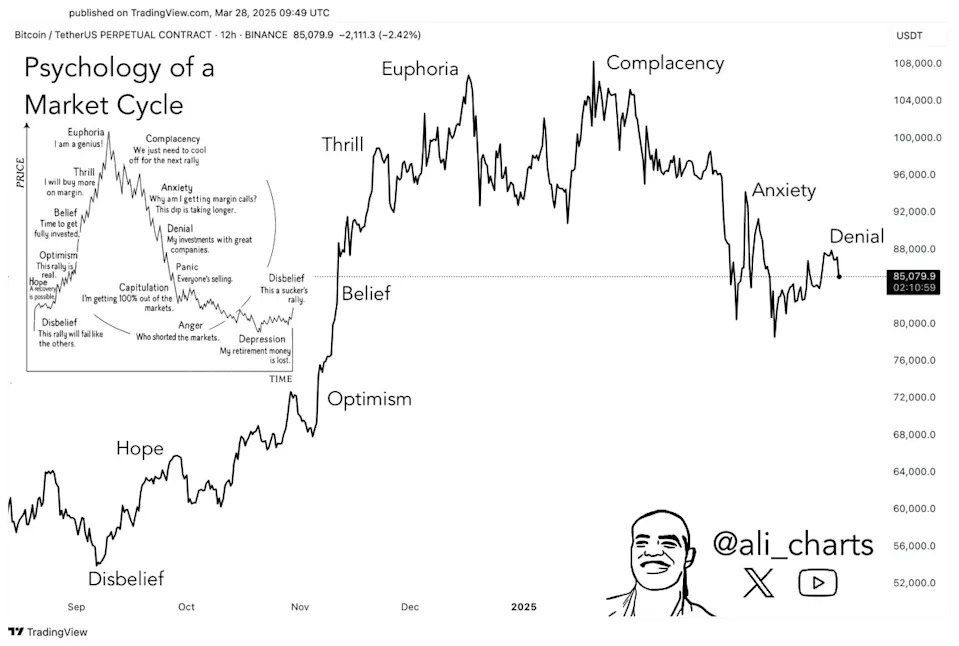News
Analyst says 'sticky inflation' could be bad for Bitcoin
Inflation in the U.S. is still running hotter than expected — and that might spell trouble for Bitcoin in the short term, according to recent data from the U.S. Bureau of Economic Analysis.
The data focuses on something called the Personal Consumption Expenditures (PCE) Price Index, which tracks how much prices are rising for goods and services people actually buy. It’s one of the Federal Reserve’s preferred tools for measuring inflation.
In February 2025, personal income (how much Americans are earning) rose 0.8%, and disposable income (how much people have left to spend or save after taxes) increased 0.9%. Meanwhile, PCE went up 0.4% in a month — a sign that inflation hasn’t cooled off much.
Even more important is Core PCE, which strips out food and energy prices because they’re so volatile. Core PCE rose 0.4% in February and 2.8% over the past year — just above the expected 2.7%.
Crypto analyst Ali Martinez warned that this “sticky” inflation could delay interest rate cuts from the Federal Reserve. That’s a big deal because lower rates tend to boost markets — especially risk assets like Bitcoin.
He warned in his post on X, saying, "February PCE came in as expected at 2.5%, but Core PCE slightly beat at 2.8% vs 2.7% forecast. Sticky inflation could delay rate cuts — not ideal for risk assets like #Bitcoin, which benefit from looser policy."
In other words, if inflation stays high, the Fed may hold off on cutting interest rates — and that could hurt Bitcoin’s momentum.
In prior cycles, tighter monetary policy has typically dried up liquidity, resulting in a reduced appetite for risk assets. As of publication, Bitcoin is changing hands for $85,408.12, down by 0.67%, according to Kraken's price feed.

Ali also posted a chart overlying Bitcoin's price action on the classic "Psychology of a Market Cycle ." The chart positions Bitcoin furthest in the 'Denial phase'—out of the euphoria range but not extending to a potential deeper correction.
Another crypto analyst Lark Davis , said, "Better days will come!" hinting at the current bearish trend in the crypto market.
Any future Federal Reserve moves on interest rates could hinge on how inflation trends play out in the coming months. Economic data releases ahead, particularly for Bitcoin–which often decides the crypto market sentiment– may offer additional context to price.

